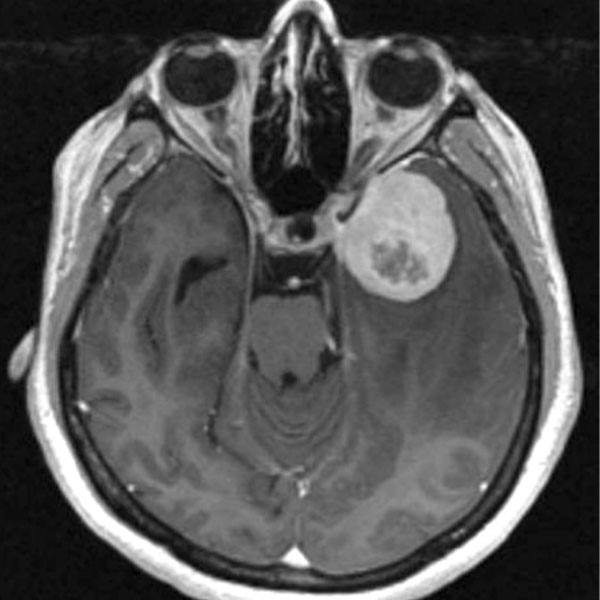-
Fat, Fasting and Multiple Sclerosis
Editor's Note: This is the second of three articles on caloric restriction. The first article focuses on replicating the effects of fasting. The final article will focus on caloric restriction in polycystic kidney disease.
Fat has been a bad word, a good word and now a fightin' word among diet advocates.
Here are some of the arguments in a nutshell: The body needs fat to make hormones and function. But too much fat can contribute to chronic disease. But removing dietary fat often means replacing it with sugar, which can be equally bad for chronic illness. But fat is vital for the brain and nervous system.
Meanwhile, for the last 40 years, the weight of the average person in the U.S. has continued to rise. People need to eat. And fat makes food delicious. But people also want to be healthy, and the conflict causes so many questions about fat. How much is too much? Does good and bad fat differ?
To find answers, Mayo Clinic researchers are taking the question from macro to micro. They are looking at the tipping point where good fat goes bad and investigating fasting to see if the cellular health benefits of caloric restriction can be replicated with medication. If scientists can untangle these complex associations between nutrients, overall calories and cell activity, scientists can potentially offer new options for a wide range of diseases, including multiple sclerosis (MS).
Diet for an Energized Brain
Isobel Scarisbrick, Ph.D., a Mayo Clinic neuroscientist, investigates the nervous system. From spinal cord trauma to MS and even in brain cancer, she and her team have spent the past two decades learning how the body meets the high-energy needs of the nervous system.

In 2016, Dr. Scarisbrick's team won funding from Mayo's Center for Biomedical Discovery to investigate how chemical reactions in cells — grouped under the term metabolism — affected myelin loss in the brain and spinal cord.
"Because of its high energy needs, the central nervous system is exceptionally vulnerable to disturbances in insulin signaling and energy homeostasis," says Dr. Scarisbrick. "So factors that regulate the availability of energy metabolites might be good targets for neuroprotection and repair."
Fat's Delicate Balance Between Disease and Need
Dr. Scarisbrick's team, including Monica Langley, Ph.D., started where most people start: diet. The scientists were building off research that higher weight in adolescence could be linked to a higher risk of MS, and that a diet high in fat could affect how the disease progressed.
"We knew from our previous work that a diet high in fat and sugar resulted in myelin loss in models of the adult central nervous system," says Dr. Langley. "With this new funding, we were able to investigate how it happens."
Their 2020 study in male mice found a diet with 60% fat (see the paper for diet details) led to higher fasting glucose levels, impaired glucose tolerance, higher anxiety-linked behaviors and loss of the forerunners of the cells that make myelin — called oligodendrocytes — and mature oligodendrocytes in the spinal cord. To understand why, they sequenced spinal cord cell RNA, which clarifies which genes and pathways are at work in the cells.

"We found that genes related to cellular stress were more active in the spinal cord cells of mice fed a high-fat diet," says Dr. Langley. "In comparison, between the mice on a high-fat diet or a normal diet, we also saw that cellular activity differed, most notably related to energy depletion in the mice on a high-fat diet. Then we looked at transcription factors that influence gene expression and focused on genes related to myelin and cholesterol."
The researchers found that the genes related to myelin and cholesterol increased in expression, perhaps they theorized, to compensate for the loss of myelin-producing cells.
"Overall, our study suggests a diet high in fat alone, like a diet high in both fat and sugar, is linked to metabolic disturbance and could trigger myelin-related dysfunction in the brain and spinal cord," says Dr. Scarisbrick. Dr. Langley's 2020 review paper compiled the current literature covering the effects of various dietary interventions on myelin production, injury and regeneration in translational models of MS along with clinical trial findings.
Taken together, the lab's work highlights specific cell functions — energy generation, inflammation and stress management — that are disrupted by diets high in fat. They also found that an important cellular network linked to the B vitamin — precursor NAD+ — was disrupted. To explore the NAD+ finding further, they turned to Eduardo Chini, M.D., Ph.D., a Mayo Clinic expert in NAD+ metabolism.

Fasting Effect Investigated
Just as what we eat is linked to cellular and overall health, so, too, is what we don't eat. Fasting within a limited time frame or limiting calories safely in general — called caloric restriction — is linked to extended life spans and better health in aging. One of the reasons why appears to be an abundance of the B vitamin precursor — NAD+ — which works with hundreds of enzymes to help cells accomplish tasks, such as energy generation and declines with age.
In 2002, Dr. Chini's lab discovered that CD38 was the enzyme that most often destroyed NAD+, and they began to research what happens when you block CD38. Read more about their journey in "From Fasting to a Pill."
The scientific literature provided examples of how CD38 contributed to myelin-loss in animal models, so Drs. Langley, Scarisbrick and Chini initiated a mouse study to clarify the roll of CD38 in oligodendrocyte loss related to a high-fat diet. They also wanted to test if blocking CD38 led to myelin regeneration.
Unexpectedly, Dr. Langley says, their most recent study in the Journal of Neuroscience, found that CD38 inhibition did not directly affect the oligodendrocytes.

Instead, the enzyme affects the oligodendrocyte "helper" cells — called "astrocytes" — and turns them from their helper duties to triage which can result in inflammation or toxicity.
"Our data demonstrate that CD38 expression is increased following chronic high-fat diet consumption and demyelination in the mouse models and in actively demyelinating multiple sclerosis lesions," she says. "These increases in CD38 lead to NAD+ depletion, leaving the myelin-forming oligodendrocytes vulnerable to degeneration. Restoring NAD+ via CD38 inhibition approaches successfully mitigates oxidative stress and inflammatory responses in addition to improving the capacity for myelin regeneration in a preclinical model."
This study, says Dr. Scarisbrick, connects obesity, which is a known risk factor for developing MS, with a metabolic pathway that can be therapeutically targeted to enhance myelin regeneration.
The team plans to expand on how CD38 influences astrocytes, and they want to test their findings in other models. They also plan to explore new genetic tools and sequencing approaches to determine the complex associations between fat, fasting and cellular activity.
"This work has the ability to contribute to new therapies for people with disorders like multiple sclerosis," says Dr. Scarisbrick, "but also for those with more common health challenges such as obesity."
— Sara Tiner







